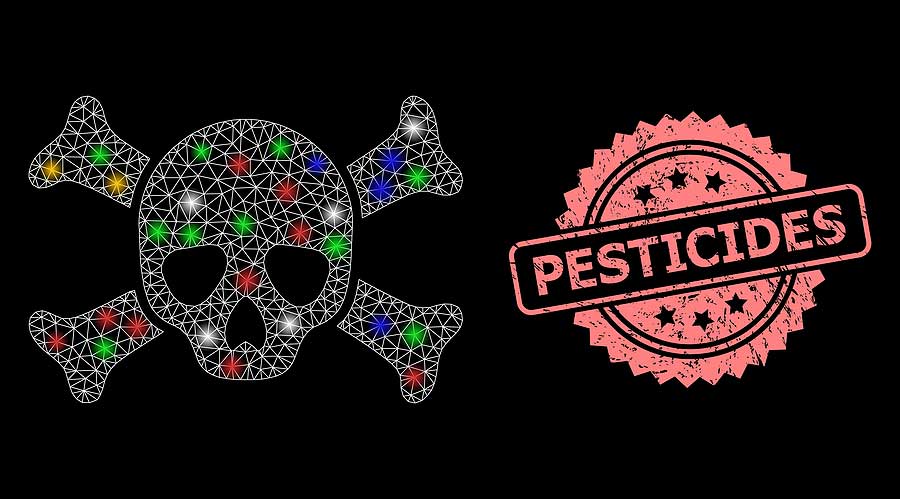In recent years, two widely discussed lawsuits have gained significant attention in the realm of agricultural chemicals: RoundUp and Paraquat. These lawsuits have raised concerns about the safety of these herbicides and their potential health risks, leading to numerous legal actions. To understand the qualifications required for individuals to participate in these lawsuits, it is crucial to examine the key differences between RoundUp and Paraquat lawsuits.
RoundUp Lawsuit Qualifications
- Exposure to Glyphosate: The RoundUp lawsuit revolves around the active ingredient glyphosate, which is widely used as a herbicide. To qualify for a RoundUp lawsuit, individuals need to establish a history of exposure to glyphosate-containing products. This exposure might have occurred through occupational use or residential use, such as gardening or lawn maintenance.
- Development of Non-Hodgkin Lymphoma (NHL): One of the primary qualifications for a RoundUp lawsuit is the development of Non-Hodgkin Lymphoma (NHL) or a similar type of cancer. Numerous studies and lawsuits have alleged a link between glyphosate exposure and NHL, making this a critical factor in eligibility.
- Timing of Diagnosis: Another essential qualification is the timing of the NHL diagnosis. Generally, individuals must have received a diagnosis of NHL after a significant period of glyphosate exposure. This connection between exposure and subsequent health issues is central to RoundUp lawsuits.
- Adequate Evidence: To have a valid RoundUp lawsuit claim, individuals need to provide sufficient evidence linking their NHL diagnosis to glyphosate exposure. This typically involves medical records, expert testimony, and other relevant documentation to prove causation.
Paraquat Lawsuit Qualifications
- Direct Paraquat Exposure: Paraquat is a highly toxic herbicide primarily used in agricultural settings. To qualify for a Paraquat lawsuit, individuals must demonstrate direct exposure to Paraquat, either through occupational use or other means, such as living near agricultural areas where Paraquat is sprayed.
- Development of Parkinson’s Disease: The core qualification for a Paraquat lawsuit is the development of Parkinson’s disease or a similar neurodegenerative condition. Scientific research has suggested a potential link between Paraquat exposure and the increased risk of Parkinson’s disease, making this a crucial element in eligibility.
- Timing of Diagnosis: Similar to RoundUp lawsuits, the timing of the diagnosis is essential in Paraquat cases. Individuals must have received a Parkinson’s disease diagnosis after significant exposure to Paraquat.
- Substantial Proof: To qualify for a Paraquat lawsuit, individuals must provide substantial evidence connecting their Parkinson’s disease diagnosis to Paraquat exposure. This may involve medical records, expert opinions, and other relevant documentation to establish a causal relationship.
Key Differences Between RoundUp and Paraquat Lawsuits
- Chemical Exposure: The primary difference between these lawsuits lies in the chemicals involved. RoundUp lawsuits focus on glyphosate exposure, while Paraquat lawsuits concern Paraquat exposure. Glyphosate is less acutely toxic than Paraquat but has been associated with long-term health risks.
- Health Conditions: RoundUp lawsuits primarily revolve around Non-Hodgkin Lymphoma, a type of cancer, whereas Paraquat lawsuits center on Parkinson’s disease, a neurodegenerative condition. These distinct health conditions reflect the specific risks associated with each herbicide.
- Exposure Scenarios: The scenarios in which individuals are exposed to these herbicides differ. Glyphosate exposure is often more widespread, occurring in both agricultural and residential settings. In contrast, Paraquat exposure is more common among agricultural workers who handle the chemical directly.
- Scientific Evidence: While both lawsuits require a strong link between exposure and health conditions, the scientific evidence supporting these links varies. Glyphosate’s connection to NHL has been a subject of debate, with conflicting studies, while the link between Paraquat and Parkinson’s disease is supported by several studies.
RoundUp Vs. Paraquat Qualifications – Contact Shamis Gentile Today!
RoundUp and Paraquat lawsuits share some common qualifications, such as exposure history, timing of diagnosis, and the need for substantial evidence. However, the key differences lie in the chemicals involved and the associated health conditions. RoundUp lawsuits focus on glyphosate exposure and its potential link to Non-Hodgkin Lymphoma, whereas Paraquat lawsuits concern Paraquat exposure and the development of Parkinson’s disease.
Individuals considering legal action should consult with experienced attorneys who can evaluate their specific circumstances and guide them through the complexities of these lawsuits. Ultimately, these legal actions highlight the importance of regulating and scrutinizing the use of agricultural chemicals to protect both human health and the environment.




